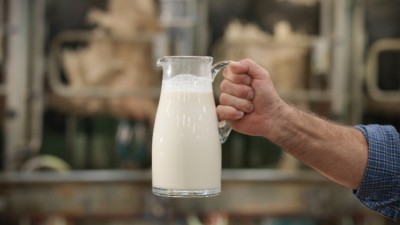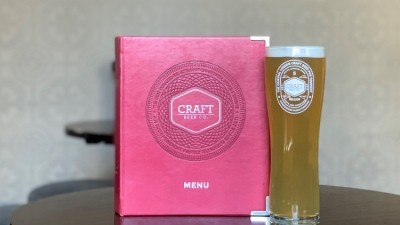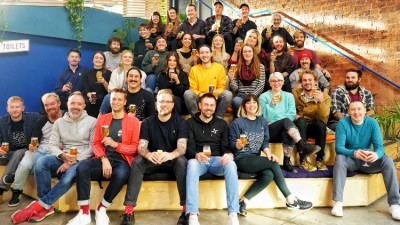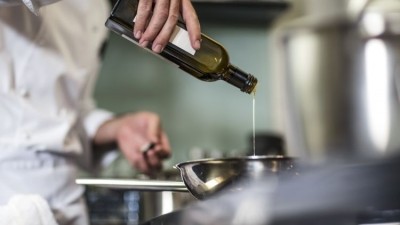Sustainability becoming ‘less of a niche’ for UK alcohol brands
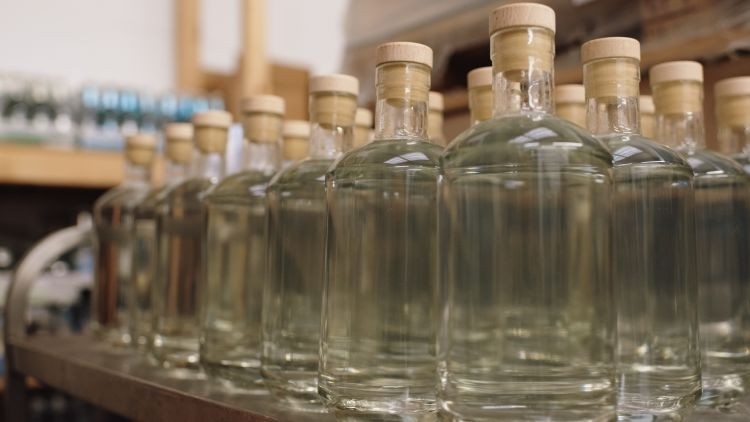
While a 2022 report by the Institute of Alcohol studies declared that “the damage caused to the environment, sustainable development, and human rights across the lifecycle of alcoholic products has received little attention so far”, independent businesses across the UK have reported growing demand for “sustainable choices” in distilling, brewing and fermentation processes.
While sustainable alcohol brands cite “high quality” products as maintaining their lead in marketing approaches, they have seen a growing awareness among businesses of the demand for responsibly sourced alcohol.
Consumers ‘willing to pay’ for sustainable products
Phoenix Arts Theatre Bar in Soho is among the venues looking to “renegotiate” with suppliers on the basis of sustainable measures, citing the need to reconcile price increases with growing consumer demands for ecological products.
Managing director Peter Dunbar described the company’s recent move towards recyclable packaging and reusable kegs as “a new point of sale”.
“Sustainability comes at an up-front cost, and with prices going up as it is, I need to find a way of justifying a £7 pint”, said Dunbar. “From a marketing perspective, that becomes more palatable for people if they know that they’ve been served up a sustainable pint. It’s absolutely proven effective”.
Two Drifters co-founder, CMO and director Gemma Wakeham said, although the brand’s locally distilled rum remains the “leading” selling point for the brand, its “sustainable story keeps people coming back”.
Founded in 2019, the Devon-based rum distillery, which is 100% electric and uses electric vehicles to transport products, was built with the conviction that “carbon neutrality should be a given”.
“In founding Two Drifters, my husband and I decided we should go the extra mile and become carbon negative””, added Wakeham.
Acknowledging the “premium” cost of eco-friendly products, Wakeham outlined the need for quality to validate higher prices.
“Ultimately, sustainable products need to be better than the alternatives to be able to sell”, she added. “It’s less about it being a sales point in itself, than having the expectation that you operate responsibly”.
Having recently become a supplier for British Airways, the company is meeting demand from consumers to aid the reduction of their own carbon footprints: “Sustainable aviation, for example, isn’t there yet, so for companies like BA, coming to suppliers like us for their refreshments helps where it can”.
Eco-friendly processes prove cost effective
There is also a growing awareness of the positives of responsible measures beyond their environmental benefits.
Describing the tendency for ‘sustainability’ to be understood as solely referring to carbon recycling and lower carbon emissions, Dunbar pointed out that “getting costings down” also incentivises introducing new measures for venues.
A recent study by Finlays found that 75% of Europeans now consider the environmental implications of their beverages.
According to Cooper King co-founder Chris Jaume, this also requires “an authentic story and full transparency”.
As the UK’s first carbon-negative gin distillery, Cooper King have benefitted financially from operating on an eco-friendly basis.
“We’ve been blown away by the increase in trade since announcing the carbon-negativity of our two core gins. We’ve gained 3 new contracts with Selfridges, the Natural History Museum and an online retailer, bringing in approximately £100k over the next 12 months”, said Jaume.
The ultimate financial gain made from these measures also extends to investment in new technology.
Phoenix Arts has recently switched to Brew and Press as their beer supplier, and is nearing the end of a six-month installation of Cellar Plus. This will replace its 20-year-old cellar system with hydrocarbon technology, providing a 20% boost in efficiency. The venue is confident this will ultimately feed back into profit.
“The new smart cellar system controls the room’s temperature, and will enable us to track sales. So it will save us literally pouring money down the drain in the form of beer which we can’t sell”, added Dunbar.
Two Difters cited the benefits of saving on direct air capture, where would-be CO2 emissions are replaced by electrically-powered technology.
Local beer an ‘inherently sustainable model’
The growth of independent beer and ale market has also seen a move from “niche” eco-friendly branding towards more standardised practices.
Attic Brew Co. director Oli Hurlow outlined an alternative perspective on the marketing benefits of sustainability. Founded five years ago, the Birmingham-based brewery has sought to avoid a “greenwashed approach”, instead placing emphasis on locality.
“Our company is local-focused, which fits with an inherently sustainable model. We haven’t capitalised on the eco side of our approach from a branding perspective, it’s just always been a concern in a personal capacity”, said Hurlow.
While the majority of Attic beer caters to consumers within a 20-mile radius, the businesses is able to limit vehicle emissions through shorter deliveries, while also making use of reusable steel kegs.
Hurlow added “being based in the centre of the country has its benefits, and we ensure the use of local ingredients. We use UK hops, for example, so rather than shipping from far-flung corners, that’s a drive down the road to Worcester”.
While locality comprises the brand’s key characteristic, Hurlow believes sustainability in itself to have become an “expectation”, rather than a stand-alone selling point: “It’s becoming less of a niche. Breweries are just expected now to be taking extra measures to reduce their carbon footprint”.
Reforms a ‘necessity’ for wineries on the ‘front line’
For Manchester-based wine supplier Boutinot, which supplies organic, vegan wine to Phoenix, this “expectation” has taken the form of “necessity” for its international wineries.
Sales account director Abi Hehir pointed to the first-hand experiences of farmers “on the ground”, where climate change is a direct obstacle rather than an ethical choice.
“Many of the wineries we work with are actively seeing dramatic changes, and they’re realising they need to adapt”, she said. “It’s a slightly different situation for the wine market, because we are involved with traditional farming rather than spirit production”.
According to Hehir, changes in wine production are more common at both the source, and through distribution. Having noticed a “growing trend” which has seen companies increasingly eager to “offer sustainable choices to consumers”, Boutinot is actively working with restaurants and bars to introduce new approaches.
A focus area of this is in packaging, which Finlays’ recent study found to be the primary concern for consumers.
“We’ve really encouraged bag-in-box packaging, which particularly suits restaurants who might want to make more incremental changes. Its lighter to transport, which lowers carbon emissions, but also cuts glass usage, which people don’t realise is also a really high emission material”, said Hehir.
Through communicating these changing demands of the UK market to foreign wineries, Hehir has found farmers to often be surprised at the increasing importance of sustainability to British consumers.
“On this particular issue, we’re not as behind as we sometimes expect”, she added.
